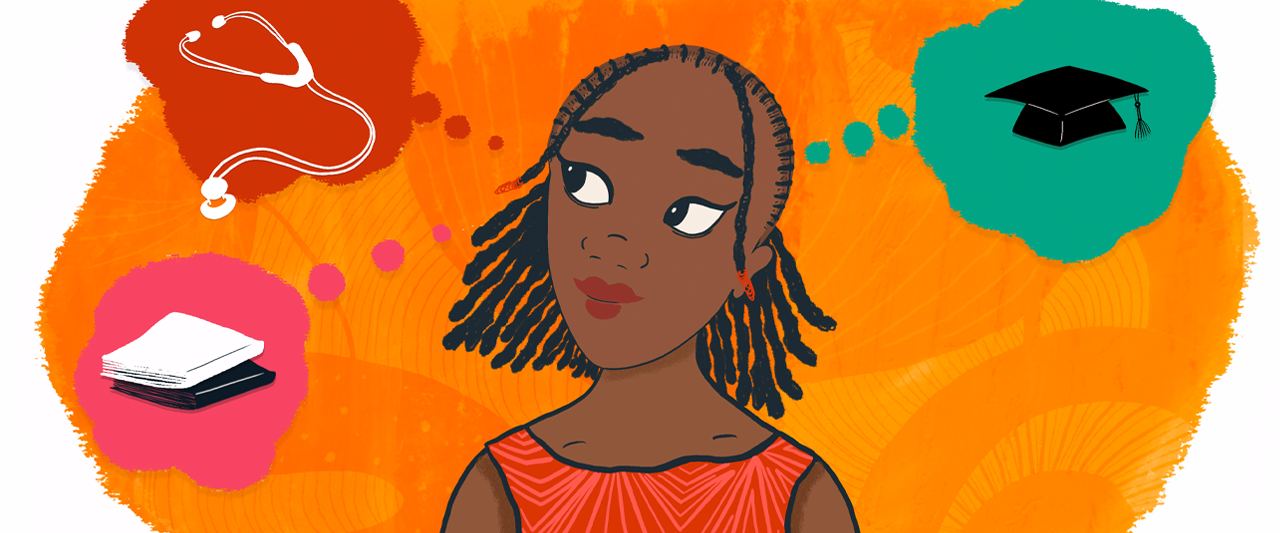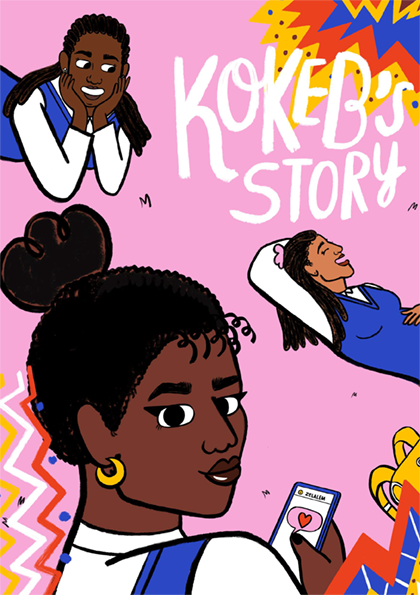One short film scores a finalist spot in WHO film festival
Mwansa’s Story, a four-minute animated film about one young Zambian woman’s journey to have an abortion safely, has been selected as a finalist in the World Health Organization’s 2021 Health for All Film Festival.
Produced by the award-winning organization PositiveNegatives in collaboration with Ipas, Mwansa’s Story shows why so many girls and young women in Zambia attempt to end unintended pregnancies using unsafe methods, even though abortion is legal in Zambia and safe procedures are available at public health facilities.
Mwansa’s Story and two other creative works Ipas developed with PositiveNegatives grew out of several years of academic research led by the London School of Economics (LSE) with Ipas.
Another short animated film, Mphatso’s Story, explores the topic of unsafe abortion in Malawi.
Kokeb’s Story is a comic illustration, a format sometimes called a “zine,” about dating and accessing safe abortion and contraception in Ethiopia.
From research to art
An article about the research, “Adolescent sexual and reproductive health and universal health coverage: a comparative policy and legal analysis of Ethiopia, Malawi and Zambia,” explores how legal and policy frameworks either hinder or facilitate access to and provision of abortion-related health care for adolescents in those countries. Over the course of the research, more than 300 interviews were conducted with young women and girls who sought care at public health facilities for either safe abortion or postabortion care following an unsafe abortion.
“As we explored these narratives, we saw the inability of many young girls to know when they are pregnant and how to seek help,” says Tam Fetters, a senior researcher for Ipas. “As researchers, we know how to share our findings with policymakers, but we also wanted to reach and engage young people themselves. So we decided to create stories that could be shared on social media, based on the research findings and using young people’s own words.”
That led to the collaboration with PositiveNegatives, who helped Ipas work with artists and communicators to turn the research findings into art and education. Funding for the collaboration came from a LSE Knowledge and Impact grant, which helps researchers share their work and engage with non-academic audiences.
A film festival finalist
This is the second year WHO has sponsored the Health for All Film Festival. This year, nearly 1,200 NGOs, students, film schools and others submitted entries on topics including nutrition, mental health and the COVID-19 global health crisis. Mwansa’s Story is one of 15 finalists in the “Better Health and Well-Being” category. The awards ceremony will be livestreamed on WHO’s YouTube channel on May 13, and all finalist selections can be viewed there until that time.
“We are excited about the quantity and quality of entries in this year’s festival,” says Dr. Tedros Adhanom Ghebreyesus, WHO Director-General. “Ultimately, we hope the festival is not just a way to tell stories, but to change the arc of people’s stories around the world, towards better health.”
For more information, contact [email protected]



